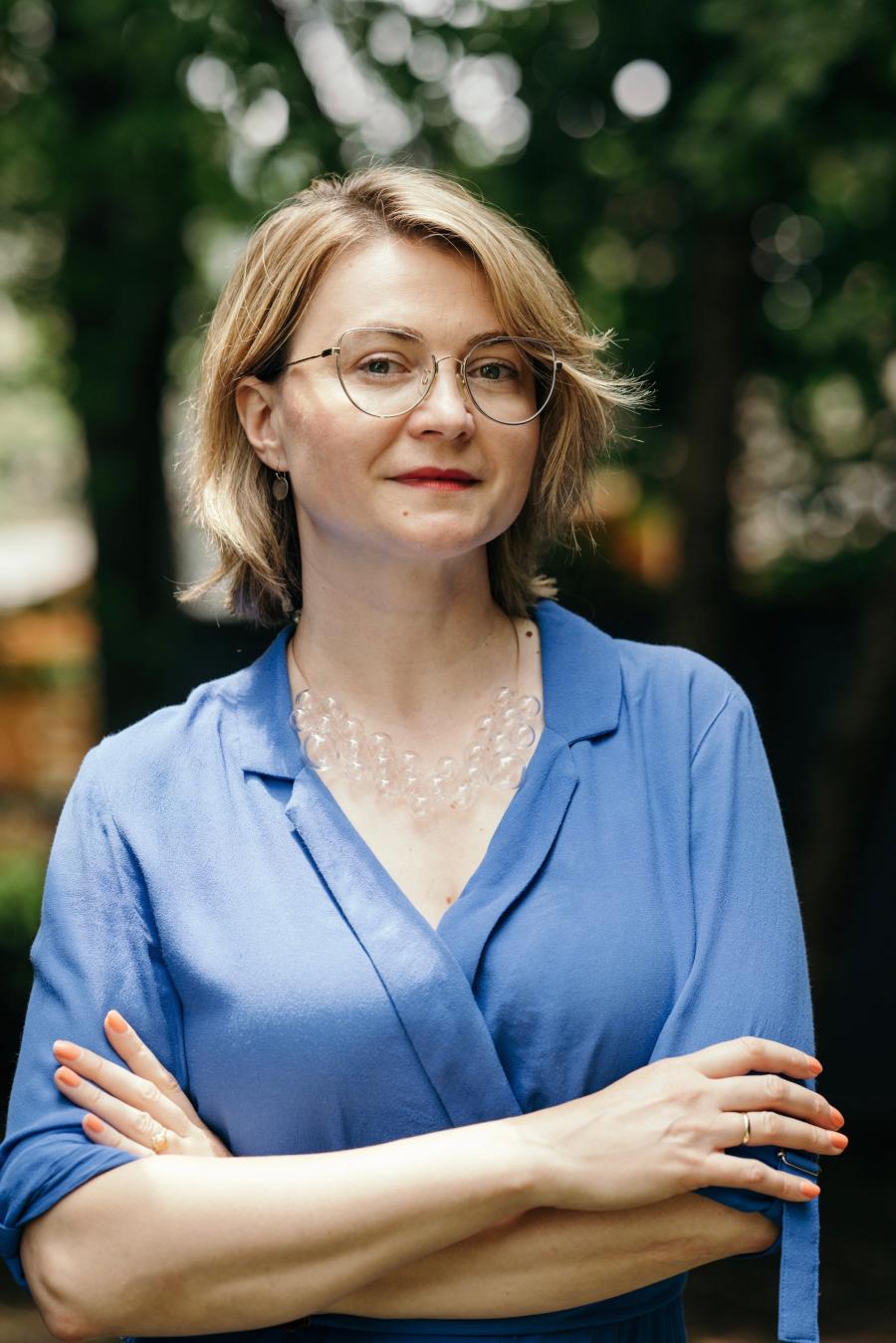A radical transformation of the visual arts took place around 1955 in the People’s Republic of Poland: Monumental compositions glorifying communist men and women of the Stalinist era were swiftly replaced with experimental, modernist abstractions. This talk will explore the specificity of modern art made in Poland under Communism—by many measures, the most liberal art scene of the former Soviet bloc—to understand the relationship between the state-socialist art system and the modernist style it ultimately promoted. Surveying the changing aesthetics of Communist Modernity, the talk will discuss the paradoxical, and often clandestine, continuity of major paradigms—such as universalism and heroism—across the shifting formal languages of realism and abstraction, thus demonstrating the persistence of socialist realist dogmas and their impact on the shape of postwar modernist art in Poland.
Magdalena Moskalewicz, PhD is an art historian, curator, and editor specializing in Eastern European art from the early avant-gardes until today. She published internationally on socialist modernism, neo-avantgardes, and the circulation of modern art during the Cold War, while in her curatorial practice, Moskalewicz examines the postsocialist condition and its parallels with postcoloniality. Born in Warsaw, Poland, Moskalewicz has worked at collecting, exhibiting, and academic institutions internationally, including The Museum of Modern Art, New York; Carnegie Mellon University, Pittsburgh; and School of the Art Institute of Chicago. Her recent writing includes contributions to The Oxford Handbook of Communist Visual Cultures (OUP 2020), Magdalena Abakanowicz (Tate 2022), and Was Socialist Realism Global? (MSN 2024). She is a recipient of Mary Zirin Prize awarded by the Association for Women in Slavic Studies.

